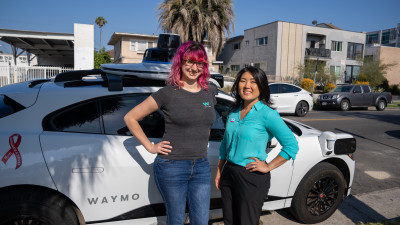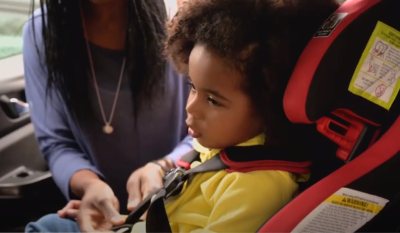
What does Metro Phoenix think of autonomous driving?
Across Metro Phoenix, people have a range of personal stories about traffic, road safety, and mobility. From cyclists who were forced into cross-traffic because of potholes to people who care for loved ones who cannot drive, every story sheds more light on how autonomous driving technology has the power to improve how we get around.
To capture these stories, in order to learn more about our community, we conducted a survey in Metro Phoenix, where Waymo has been operating its autonomous ride-hailing program since 2016. More than 500 people shared their thoughts, ideas, and visions for the future of transportation. Here’s what they had to say.
Metro Phoenix respondents think autonomous driving technology could improve road safety
Overall, Metro Phoenix survey respondents can see the possibilities of autonomous driving technology when it comes to safety: 70% of survey respondents think autonomously driven vehicles would improve road safety in Metro Phoenix.
Autonomous driving technology like Waymo’s can be designed to obey road rules, be constantly vigilant, and respect other road users. Waymo shares the City of Phoenix’s road safety goal to create a mode of transportation that is safe for the passengers, pedestrians, and fellow drivers.
Respondents are hopeful about the potential of the technology to improve road safety, not only for passengers but for everyone on the road, including cyclists and pedestrians. Respondents can also envision the opportunities and independence the technology could bring to people with disabilities, seniors, and those who may currently face challenges when it comes to getting around independently.
Reduced traffic fatalities is hands down the largest benefit of self-driving.Survey Respondent
Most Metro Phoenix residents are excited to ride in autonomous vehicles… or already have
While downtown Phoenicians are 63% more likely to ride in an autonomous vehicle than the general public, survey results also found over half of respondents would be willing to ride in a driverless autonomous vehicle. Some of the respondents said they were excited about the prospect of getting time back they would otherwise spend driving during their commutes. Others highlighted potential benefits, such as beating the Arizona heat. Some of the top ways survey respondents would spend their free commute time are:
Relaxing or sleeping
Sightseeing
Working or studying
Hobbies like reading & music
Meanwhile, 9.3% said they had already been a passenger in an autonomously driven vehicle. It’s possible that some of them may have been part of Waymo’s Trusted Tester program in its newly announced central Phoenix service area, which allows users to ride in Waymo’s autonomously driven vehicles before it’s available to the public, or have already taken a ride with the Waymo One ride-hailing service in the Phoenix East Valley.
Metro Phoenix respondents believe autonomous driving technology could help those facing mobility challenges
While 36.4% of respondents think autonomous vehicles could improve personal convenience, almost half of the respondents (48.8%) believe autonomous vehicles could improve mobility for someone else. Short- or long-term disabilities can severely limit mobility, especially for those with visual impairment or blindness, age-related or cognitive disabilities, or those who require mobility aids.
When it comes to a disability that limits mobility, 1 in 4 people in Metro Phoenix personally know someone with a physical or cognitive disability:
36.2% know someone who can't drive due to blindness or low vision
45.9% know someone who can't drive due to a physical or mental disability
40.4% know someone who can't drive due to an age-related disability
While some individuals with the above disabilities may be able to rely on public transportation, some cannot and there are often gaps in public transport service that make it difficult. Autonomous driving technology could help provide people with disabilities a greater sense of independence and autonomy in their day-to-day lives by expanding their range of mobility options.
I believe an autonomous vehicle will open up lots of opportunity for people who are blind and will afford the similar types of mobility freedom that sighted people enjoy.Downtown Phoenix Resident
Metro Phoenix respondents believe autonomous vehicles could complement public transportation
With 67% of Phoenicians using two or more modes of transportation in their daily life, many residents believe autonomous vehicles could help support public transportation, leading to safer, more connected cities. In fact, 37.1% of survey respondents believe autonomous driving technology will improve public transit.
One way autonomously driven vehicles can complement public transportation is by serving as an on-demand extension of service areas. Waymo has collaborated with Valley Metro to explore how autonomously driven vehicles could help alleviate what’s known as the “First/Last Mile Problem”. For those without immediate access to public transportation, an autonomously driven vehicle could help them reach the nearest transportation hub without needing a car or relying on someone else to take them there.
While people still have some questions about autonomous driving technology, Metro Phoenix residents have taken the bold step of sharing their voices and helping define the conversation around fully autonomous driving. Each response is one voice. And each voice is one of many.
To see the full survey results, visit this page to learn more. Subscribe to our newsletter to stay up to speed on autonomous driving.


